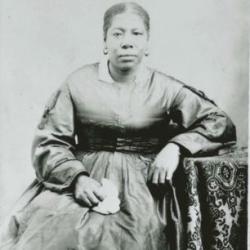 I am pleased to post an interview below that I conducted with Dr. Joel B. Green (Fuller Theological Seminary) on the subject of his new book Body, Soul, and Human Life (Baker, 2008). In order to better prepare yourself for understanding both my questions and some of Dr. Green’s answers, I encourage you to read my brief summary and review of the book HERE.
I am pleased to post an interview below that I conducted with Dr. Joel B. Green (Fuller Theological Seminary) on the subject of his new book Body, Soul, and Human Life (Baker, 2008). In order to better prepare yourself for understanding both my questions and some of Dr. Green’s answers, I encourage you to read my brief summary and review of the book HERE.
Finally, I would like to thank Dr. Green for his participation. Respectful comments and further questions are welcome, though I cannot guarantee a response.
NKG: Can you tell us how a New Testament scholar came to earn a Master of Science in Neuroanatomy and Neuroscience (Univ. of Kentucky, 2002)?
JBG: Let me say, first, that I did not earn a Master of Science from the University of Kentucky. This is an often-repeated misrepresentation. I did work toward the MS at the University of Kentucky, focusing on neuroanatomy, neuropsychology, and the history of neuroscience. I was unable to complete the degree, however, due to my responsibilities as provost at Asbury Theological Seminary.
Second, my interest in this area of research began in the mid-‘90s as a result of an invitation to participate in an interdisciplinary working group on “portraits of the human person” from neuroscientific, theological, philosophical, and biblical studies perspectives. This is the group that produced the book, Whatever Happened to the Soul?, edited by Warren Brown, Nancey Murphy, and Newton Moloney (Fortress, 1998). This invitation led to another working group, also sponsored by the Templeton Foundation, and to another book — this one edited by Malcolm Jeeves, From Cells to Souls—And Beyond: Changing Portraits of Human Nature (Eerdmans, 2004). Even in those discussions, the line between the neurosciences and theological conversation was obvious, and I wanted to traverse it!
So this is a case of one thing leading to another…
NKG: Your book, Body, Soul, and Human Life, is meant to introduce a way of creating a meaningful dialogue between biblical interpretation and Christian theological tradition, on the one hand, and ‘modern advances in the neurosciences’ on the other (p. 32). This is a very stimulating exercise in
interdisciplinarity – who do you see as your primary audience? Who do you WANT to read the book?
JBG: If you get biblical scholars, theologians, and neuroscientists in the same room, there are multiple opportunities for misunderstanding, and many assume that one area of study stands in tension with the other. I hope that Body, Soul, and Human Life helped to ease some of that tension as people see areas of common interest and congruent witness.
NKG: One issue that is taken up in your book is a concern that the Hebrew and Greek words that are often translated ‘soul’ are polysemous and do not necessarily refer to the ‘inner life’ or the ‘soul’ (see pp. 56-8). What you learn from neuroscience challenges viewing such an independent ‘part’ of the human. You state: ‘If the capacities traditionally allocated to the “soul” – for example, consistency of memory, consciousness, spiritual experience, the capacity to make decisions on the basis of self-deliberation, planning and action on the basis of that decision, and taking responsibility for these decisions and actions – have a neural basis, then the concept of “soul,” as traditionally understood in theology as a person’s “authentic self,” seems redundant’ (p. 45). Do you, then, propose that nephesh (Hebrew) and psyche (Greek) not be translated ‘soul’ ever in the Bible? Or does the word ‘soul’ still have utility on a metaphorical level (as in Luke 2.35; Heb. 6.19)?
JBG: My tendency is not to use the term “soul,” since I find it difficult to overcome centuries of Cartesian influence without issuing a lecture to go along with my use of the term! I have a friend who prefers to speak of “soulish” or “soulishness” as a way of pointing to the important aspects of human life traditionally associated with the “soul.” But I follow his lead only rarely.
NKG: 5. Is the interdisciplinary approach you have undetaken methodologically reproducable? Is there a ‘way’ to study other topics in theology from the perspective of neuroscience? Have you offered a specific set of tools?
JBG: The main contribution I have to make on this point, I think, is to underscore what I take to be the organic character of the theology-science interchange. For many, the tendency is to think that scientists do science and theologians do theology, without accounting for the twin realities that scientists have working assumptions that we might call “theological” and theologians have working assumptions about science. In other words, science and theology were already interacting while we weren’t looking!
For example, it is not that the “New Science” of the 1700s introduced “science” for the first time into theological discourse. Paul wrote 1 Cor 15 against the background of a certain cosmology. Similarly, the “new scientists” were themselves often motivated by their faith to engage in their work. As Augustine had phrased it, they were studying the second of God’s Two Books, the world that God had created.















